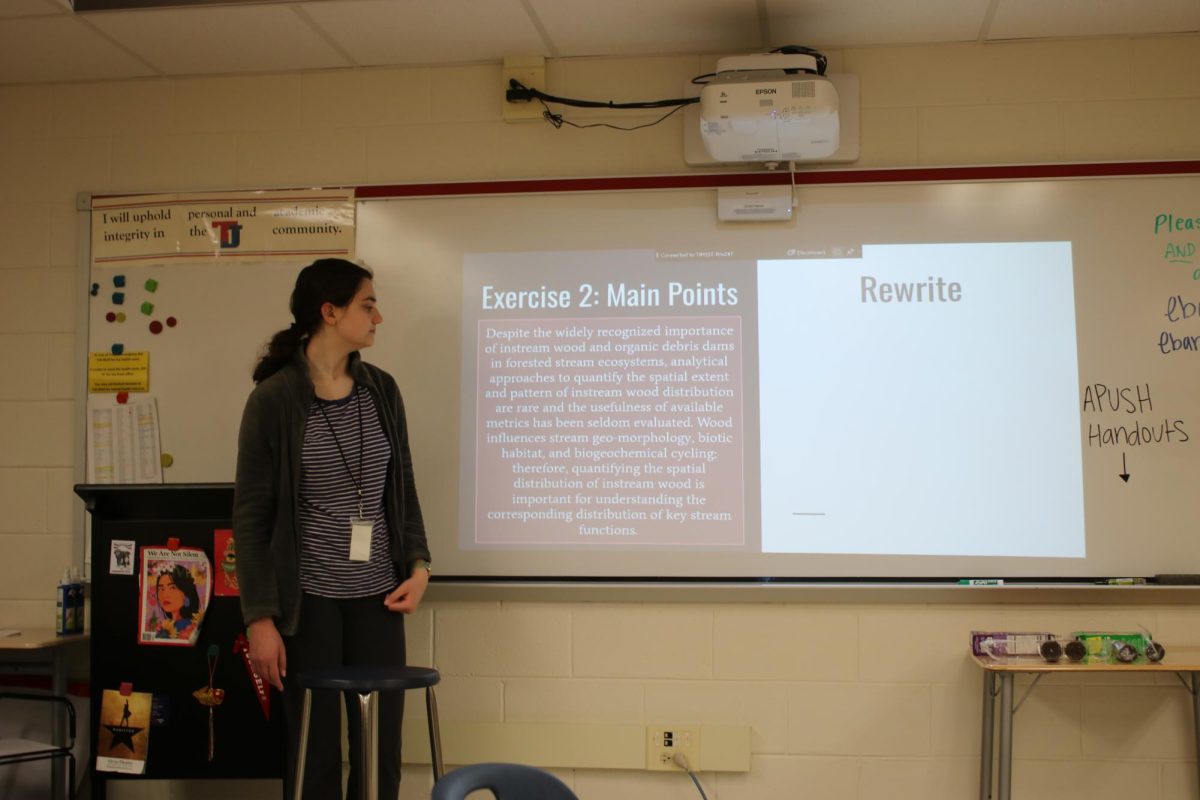The Writing Center hosted a science writing special covering writing tips on Wednesday, Feb. 28. The presentation event supported students working on Integrated Biology, English, Statistics, and Technology (IBEST) writing.
Typically in the Writing Center, students bring class assignments such as literary analysis essays and research papers. Students also bring drafts for the Teknos science journal, Threshold literary magazine, National Council of Teachers of English (NCTE) and Scholastic competitions. They work with peer tutors to revise their writing.
“We work together to provide a community resource where students give back to the community,” Writing Center co-sponsor and English teacher Suzette Henry said.
Henry has sponsored the Writing Center for 12 years. For the last five years, the Writing Center has hosted the science writing special.
“When students come to the center, they often need help with science writing,” Henry said. “As a result, our board members created the presentation.”
The special was targeted toward freshmen conducting IBEST research or with questions about the scientific writing process.
“I wanted helpful tips for my IBEST group,” freshman Frances Yeboah said. “In the future, I am considering participating in the Regeneron International Science and Engineering Fair (ISEF) and possibly writing a Teknos article.”
Yeboah also believes that the Writing Center should extend off of the scientific writing special and host more events.
“I think TJ students would appreciate having access to tips to improve their writing skills for projects, college, and jobs,” Yeboah said.
During the event, junior and Writing Center Board member Ophelia Tulchinsky presented a slideshow discussing how to effectively write and organize a scientific paper, as well as how to interact with researchers. Revising activities came from “Writing Science in Plain English” by Anne Greene and a Duke University writing website.
“I learned how to make writing more accessible to others as well as tips to improve my writing,” Yeboah said. “These tips included using active voice, less technical terms and not using abstract nouns.”
“The most important tip is to have someone else who’s not a part of your project read it. Can they understand what you said? Take their feedback,” Tulchinsky said.
The science writing special emphasized the school’s ideal of developing students into science communicators.
“Jefferson students have wonderful ideas and creative minds,” Henry said. “It is our hope that when students go into scientific fields they are able to make complex ideas palatable to the public.”

